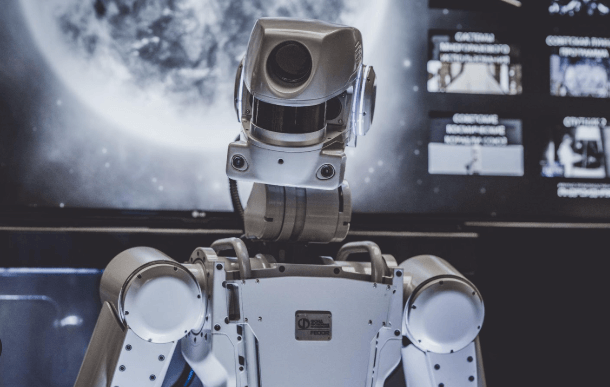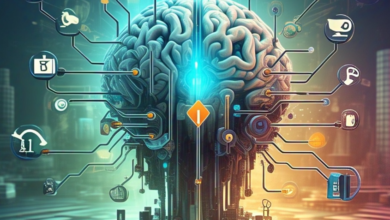AI for Software Testing: Reducing Time-to-Market

In the world of creating software applications, companies always feel the pressure to make good products quickly. AI, which stands for artificial intelligence, has become a big deal in software testing.
AI for software testing helps businesses speed up their testing work while maintaining high quality. Usually, testing software involves people doing things by hand, which takes time and can lead to mistakes. But with AI getting better for testing software, companies can make machines do repetitive tasks, make tests more accurate, and reduce the time it takes to release a product.
AI testing tools use machine learning, natural language processing, and predictive analytics to find problems in software faster, make sure all areas are tested well, and rely less on people doing tests manually.
This not only saves time but also saves money and makes software better overall. The article presents insights about AI’s impact on the software testing industry and its advantages, as well as uses AI strategies to improve the testing process for organizations.
What is Time to Market (TTM)?
The time between conceptualization and final product availability defines Time to Market (TTM). TTM displays the entire duration of product development, from manufacturing to final testing and launch readiness. A shorter TTM is important for companies to stay competitive and react quickly to people’s needs.
For instance, if you create a mobile app, the time you spend planning, developing, testing, and launching it is your TTM. A faster TTM means happier customers and more market success chances. Thus, TTM is important when creating new software and developing fresh ideas.
Why is AI Essential in Software Testing?
Things are getting more complicated in the software development industry, and new software needs to be made quickly. The old ways of testing software are struggling to keep up with these changes. Testing everything manually takes a lot of time, mistakes can happen, and making it work for big projects is difficult. Even using traditional automation methods means spending a lot of time writing and fixing scripts. This is why AI in software testing is so important. It brings smart automation, flexibility, and efficiency to match the needs of modern software creation.
One big reason people are using AI for testing software is that they want to release their products faster without sacrificing quality. Methods like Agile and DevOps focus on testing quickly, and often AI-powered testing helps with this by immediately running and improving tests, ensuring any issues are found and fixed quickly. AI can also analyze large amounts of data to predict where problems might be and perform repetitive tasks automatically, reducing the chances of missing bugs.
Another unique thing AI does is fix test scripts when software changes, saving time and effort. It also uses smart analytics to help testers see the risky parts of the software and catch problems faster.
See also: Understanding Fintech: Industry Overview, Key Participants, Market Perspectives, and Products
How AI Enhances Test Automation?
The concept of test automation has been part of software testing for decades. However, the use of AI for testing brings it a step ahead. In traditional automated testing, scripts have to be written in advance and updated frequently to maintain suitability with changes in the software. Differently, AI-based automation uses machine learning and adaptive algorithms to adapt and create real-time tests.
One of the greatest advantages of AI in software testing is its ability to adjust test scripts automatically if there are changes in any UI elements across an application. Hence, with AI-based testing tools, there is no need for human interference and changes in these adjustments while the test remains effective and up-to-date.
Besides, AI-driven automation can prioritize test cases by performing risk analysis and pointing out the most critical areas to be tested. This leads to improved test coverage and catches crucial defects at the earliest stage possible. Software teams can then use AI-powered test automation to enhance efficiency, shorten testing cycles, and speed up their time-to-market.
How Does AI Drive Test Case Generation and Execution?
Creating test cases by hand is a long and tiring job that needs a lot of knowledge about the subject and a large amount of work. AI technology in software testing makes this job easier by automatically creating test cases using past data, user actions, and what the software is supposed to do. This AI-driven process ensures that all parts of the software are tested well, reducing the chance of missing any bugs.
AI tools for testing look at the existing test cases, find gaps, and develop new scenarios without human intervention. This speeds up the testing process and makes it more accurate by avoiding human mistakes. Additionally, AI allows tests to run in real-time, providing instant feedback on how the software works and its stability.
By using AI in testing, companies can improve their test plans, cut unnecessary work, and pay more attention to the most important parts. AI-based test runs also guarantee that tests are done the same way on all platforms, making it simpler to keep quality levels across different software and settings.
How Can AI Reduce Testing Time with Defect Detection?
One of the best things about using AI in software testing is how it can find mistakes early in the development process. Normally, finding mistakes means people looking through lots of code by hand, which takes a long time and can lead to errors. With AI tools, though, they can check the code, see patterns, and predict problems before they cause issues in the final product.
AI uses special algorithms to look at code, find strange things, and pinpoint where there might be trouble immediately. This careful way of working means fewer mistakes in the final product, making the software more dependable. Also, when AI spots mistakes, developers can fix them early, stopping the need for expensive rework and delays.
By using AI to test software, companies can save much time on testing while still keeping the software quality high. This helps products get to market quicker without sacrificing how well they work, how safe they are, or how good they are for users.
How Does AI Improve Regression Testing for Continuous Quality?
Software testing successfully maintains current functions through Regression testing because it protects existing operational integrity during new update implementation. Manually performing these tests consumes significant amounts of both time and resources. Artificial Intelligence (AI) in software testing comes to the rescue by automating and improving regression testing, enabling businesses to uphold continuous software quality.
AI-powered testing tools can study previous test outcomes, recognize patterns, and decide which test cases require re-testing. This helps cut down on redundancy and lessen the overall testing workload. Moreover, AI-based regression testing can adjust to changes in real time, guaranteeing thorough testing even for minor updates.
By incorporating AI into regression testing for software, companies can speed up release cycles without compromising on quality. Automation driven by AI ensures that the software remains steady through various updates, delivering a smooth user experience while decreasing the need for manual testing.
AI and Performance Testing: Enhancing Speed and Scalability
Ensuring software can handle lots of users without crashing is very important. Normally, testing this requires a lot of work and careful observation. Using AI in software testing makes it easier by doing tests automatically, checking how the system works, and figuring out where problems might happen. AI tools act like real users, test how well the system works in different situations, and show where it might struggle to handle more users.
AI can also spot patterns in how the software performs, helping companies improve it before any issues arise. With AI, companies can do more thorough testing in less time. AI can change test settings independently, find issues, and suggest ways to make software work best when it’s being used for real.
AI in Security Testing: Detecting Vulnerabilities Faster
Security testing plays a critical role in software development; therefore, the safety of apps must be ensured from cyber dangers during development. Sometimes, when people check for security issues by hand, they might miss new threats. Artificial Intelligence (AI) in software testing improves security by automatically finding threats, checking for weaknesses, and analyzing risks.
AI-powered tools can also review the code, spot possible problems, and act out cyber attacks like in the real world. With the help of machine learning, AI can see trends in cyber attacks and even predict future dangers, which helps companies be ready with security measures in advance.
By adding AI to software testing as part of security rules, companies can boost their defenses against cyber threats, lower the chances of risks, and follow the necessary industry rules. AI-based security testing not only improves app safety but also speeds up the testing process, leading to faster launches in the market.
AI for Software Testing: Reducing Time-to-Market Using LambdaTest’s KaneAI
A quick time-to-market enables companies to maintain their competitiveness in the market. AI has revolutionized testing methodologies through new approaches that enhance speed and intelligence.
KaneAI, developed by LambdaTest, is an AI-powered testing assistant designed to revolutionize software quality assurance. As the world’s first end-to-end AI test agent, KaneAI enables users to create, manage, and debug complex test cases using natural language inputs, significantly reducing the time and expertise required for test automation.
Key Features:
- Natural Language Test Authoring: Allows users to generate and evolve test cases through conversational inputs, simplifying the test creation process.
- Intelligent Test Planning: Automatically generates and automates test steps based on high-level objectives, ensuring alignment with project goals.
- Multi-Language Code Export: Converts automated tests into all major programming languages and frameworks, providing flexibility across different environments.
- AI-Powered Debugging: Offers real-time root cause analysis and remediation suggestions for failing tests, streamlining the debugging process
Conclusion
AI, or artificial intelligence, is changing how software testing works. It’s making things easier by automating tests, saving time, and ensuring the software works well. With AI tools, businesses can release their products faster without compromising quality. Companies using AI for testing save time and make fewer mistakes, helping them get their products out quicker. As AI keeps improving, it will become even more important in testing software, helping companies keep up in a world that relies increasingly on digital technology.



